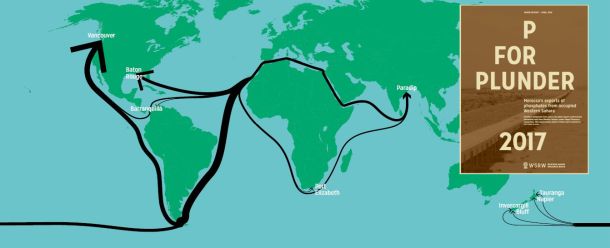
Siemens has created a new company that will inherit its operations on occupied land in Western Sahara, but still refuses to clarify whether the people of the territory have actually consented to those operations.
On 9 July 2020, Siemens AG held an Extraordinary Shareholders' Meeting, to vote on proposals for spinning off its energy division into a separate company: Siemens Energy AG. Since that new entity will include Siemens' 67% stake in Siemens Gamesa Renewable Energy (SGRE), it will also acquire SGRE's contractual obligations regarding Morocco's wind parks in occupied Western Sahara.
In collaboration with the German NGO Dachverband der Kritischen Aktionärinnen und Aktionäre, Western Sahara Resource Watch (WSRW) presented questions at the Meeting to assess whether the new Siemens spin-off will deviate from its former parent company with regard to the controversial projects.
The answer is no.
CEO Joe Kaeser, answering on behalf of Siemens AG, was as evasive as ever in response to the technical and factual questions raised by WSRW. Again refering to SGRE as responsible for that particular "corporate strategy" , Kaeser stated that SGRE's management "will be guided by the relevant legal framework" - without, yet again, explaining what legal framework that would be.
Read the questions submitted by WSRW and Dachverband der Kritischen Aktionärinnen und Aktionäre here. A transcription of the company's response (translated to English) can be found here. Find the German transcript here.
Since 2015, the EU Court of Justice has repeatedly ruled that Morocco has no sovereignty over Western Sahara, nor any international mandate to administer it. The Research Services of the Bundestag qualified Western Sahara as an occupied territory and deemed Morocco's settlement policy in the territory as substantiating a violation of the Geneva Convention. Remarkably, Siemens AG itself has referred to Western Sahara as occupied in a report published by the NGO Facing Finance in 2019 [or download].
In recent years, the EU Court of Justice and the UN Treaty Bodies on Civil and Political Rights and on Economic, Social and Cultural Rights have insisted on the Saharawi people's right to free, prior and informed consent regarding any project on their land, as a natural corrolary of their internationally recognised right to self-determination.
Remarkably, Kaeser stated that Siemens takes the right to self-determination "very seriously", yet the company will not answer the simple question whether they have obtained the consent of the people of Western Sahara to Siemens' operations on their occupied homeland. According to Kaeser, the company will carry out a human rights risk assessment in Western Sahara and will in that particular framework refer to the right to self-determination - but he refuses to answer whether the results of such an assessment will be shared with the holders of that particular right; the Saharawi people.
This is the fifth consecutive time that German engineering company dodges questions on the legality of its activities in Western Sahara at shareholder' meetings.
Siemens has delivered wind mills for literally every wind farm that Morocco has constructed in the part of Western Sahara that it holds under occupation in violation of international law.
Siemens Energy AG is expected to begin trading on 28 September 2020.
New report: Western Sahara phosphate trade halved
The export of phosphate rock from occupied Western Sahara has never been lower than in 2019. This is revealed in the new WSRW report P for Plunder, published today.
Siemens again refuses to answer questions about Western Sahara at AGM
For the fourth consecutive year, the German engineering company dodges questions at its Annual Shareholders Meeting as to whether it has obtained the consent of the people of Western Sahara to operate on their land.
New report on Western Sahara phosphate industry out now
Morocco shipped 1.93 million tonnes of phosphate out of occupied Western Sahara in 2018, worth an estimated $164 million, new report shows. Here is all you need to know about the volume, values, vessels and clients.
New report on contentious Western Sahara phosphate trade
Morocco shipped over 1.5 million tonnes of phosphate out of occupied Western Sahara in 2017, to the tune of over $142 million. But the number of international importers of the contentious conflict mineral is waning, WSRW's annual report shows.



